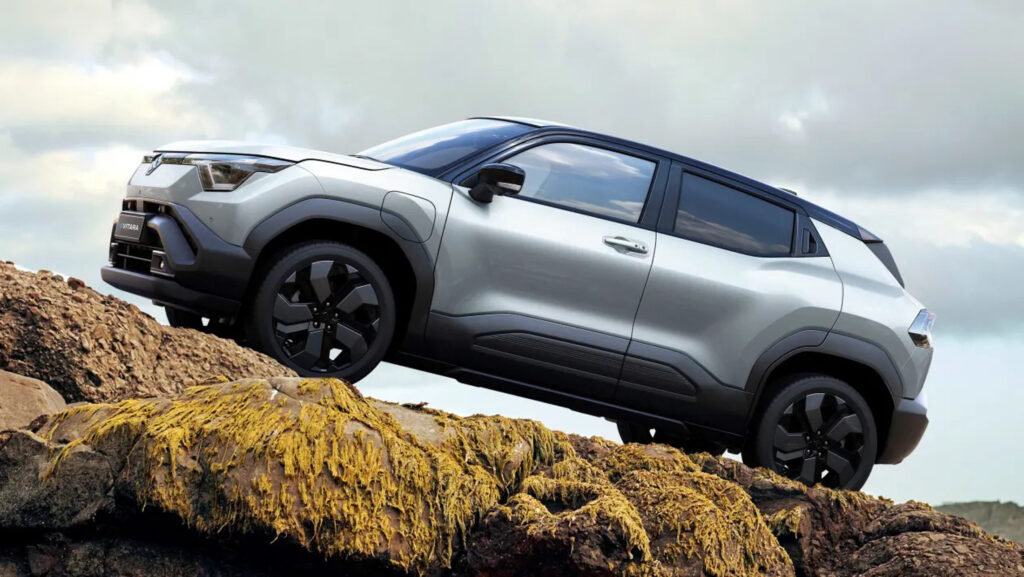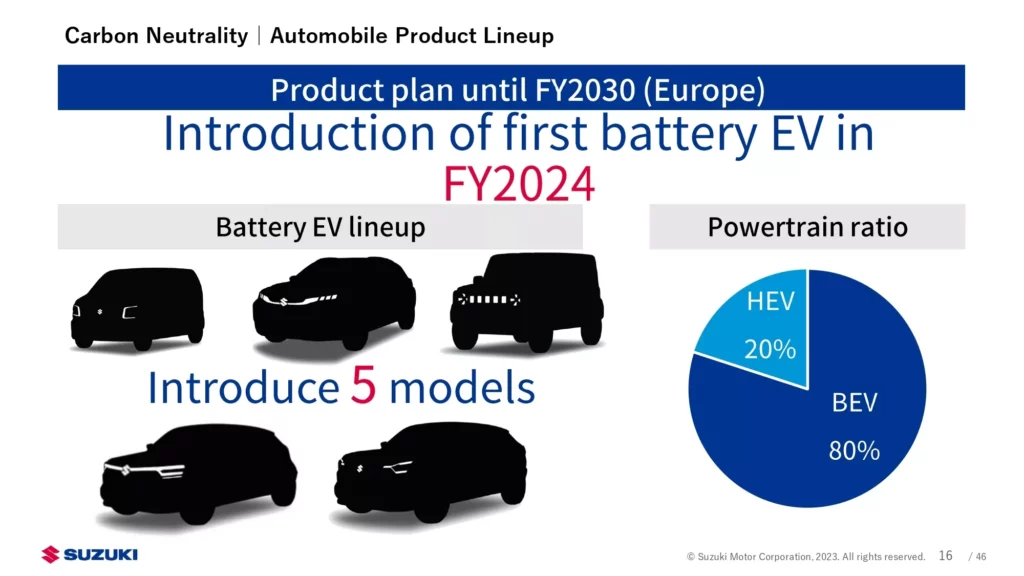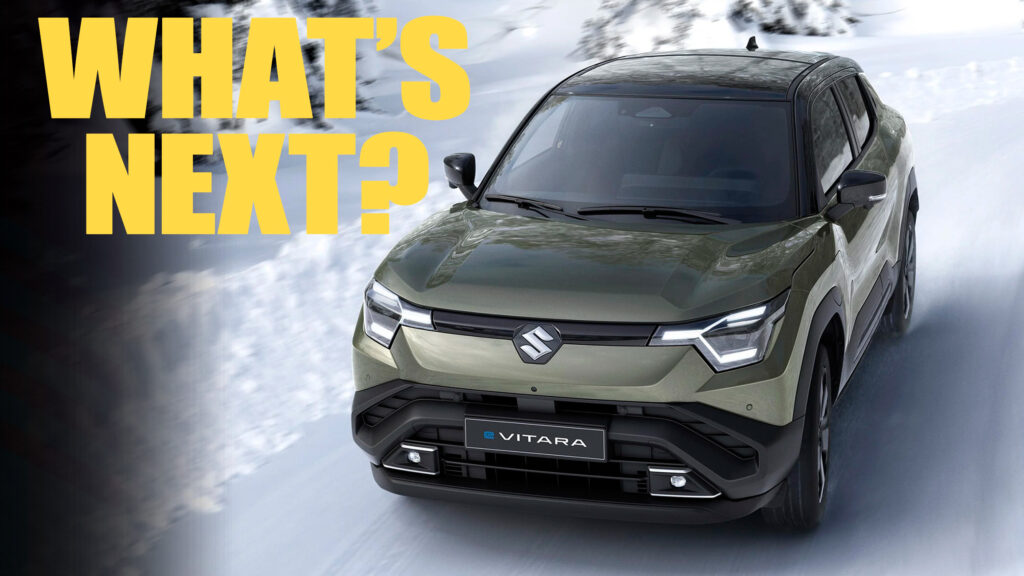- Suzuki had said it will invest $35 billion to launch five EVs by 2030 but appears to be backing away from these promises.
- Company president Toshihiro Suzuki recently indicated an electric Jimny could be off the cards.
- India accounts for 48% of Suzuki’s sales and will rely heavily on ICEs for quite some time.
A few days ago, Suzuki finally ventured into the world of electric vehicles, unveiling the eVitara. It’ll be built in India and shares a lot in common with a new Toyota bZ SUV that’s also on the horizon. However, Suzuki remains trepidatious about future EV investments due to the ever-fluctuating industry.
The Japanese carmaker had originally promised to invest $35 billion to launch five EVs by 2030, but this may no longer happen. While speaking with media members at the launch of the eVitara, company president Toshihiro Suzuki acknowledged the slowdown in EV demand and increased competition from Chinese brands.
Read: New Suzuki eVitara Is Toyota’s Next bZ In Disguise
“We are in a very difficult situation at this moment as the sales of BEVs are slowing down and on the other hand, affordable and cheap EVs from China are coming into the market, so it is a very difficult time to introduce [further] BEVs,” he told Autocar. “Looking at the current situation, the government incentives for BEVs are going out and, [coupled] with Chinese EVs that have very strong [segment] competitiveness, you have to think carefully about what type of BEV should be introduced to the market and in what time.”
Suzuki teased its five planned EVs back in early 2023. One of these included an all-electric version of the Jimny and BEV variants of the S-Cross and Ignis. While the idea of an electric Jimny sounds compelling, the brand’s president recently poured cold water on the plan, suggesting the added weight of a battery pack “would ruin the best part” of the pint-sized off-roader.

So, what EV is next for Suzuki? It will be something smaller than the eVitara, but the date it’ll launch largely depends on how well the eVitara sells and future market trends.
While many other car manufacturers continue to rush towards EVs, despite some growth pains this year, Suzuki doesn’t have the same urgency. Part of the reason for this is that 48% of its annual car sales come from India, and combustion vehicles will continue to play a big role in that market for many years to come. As a result, Suzuki is developing hybrids, e-fuels, and vehicles that run on biogas.




